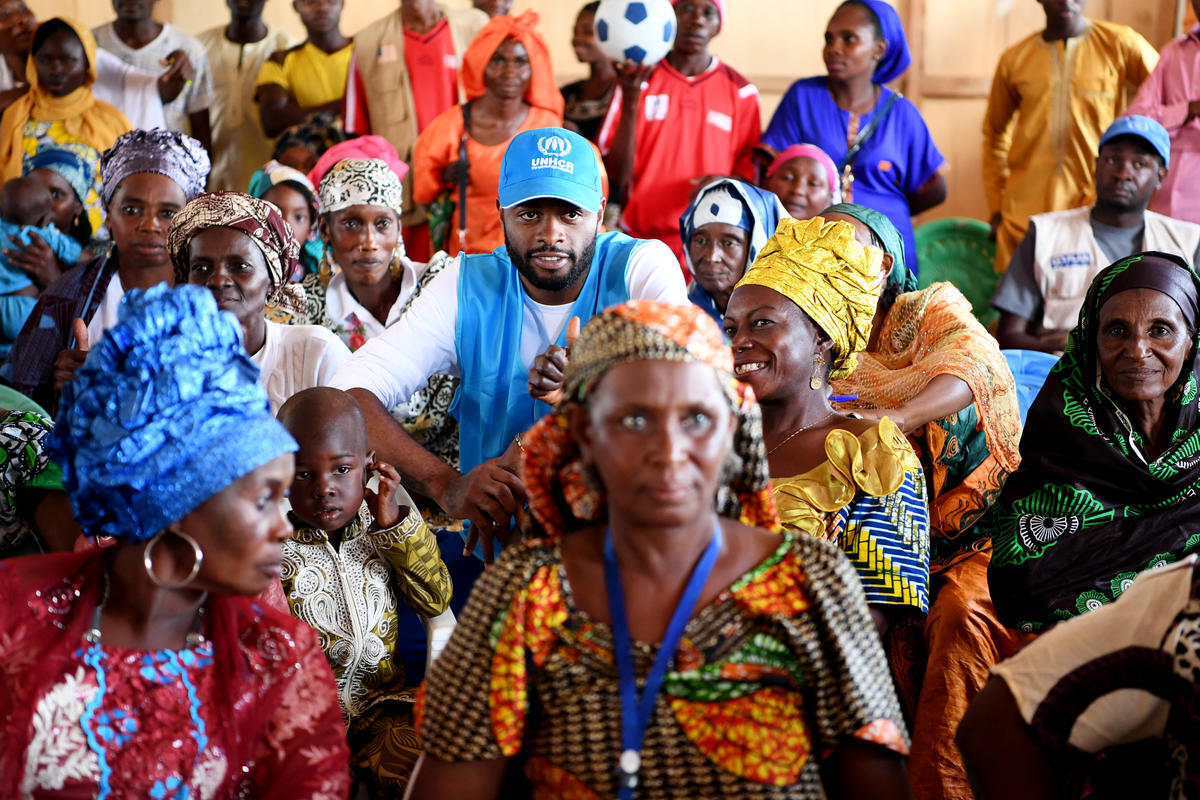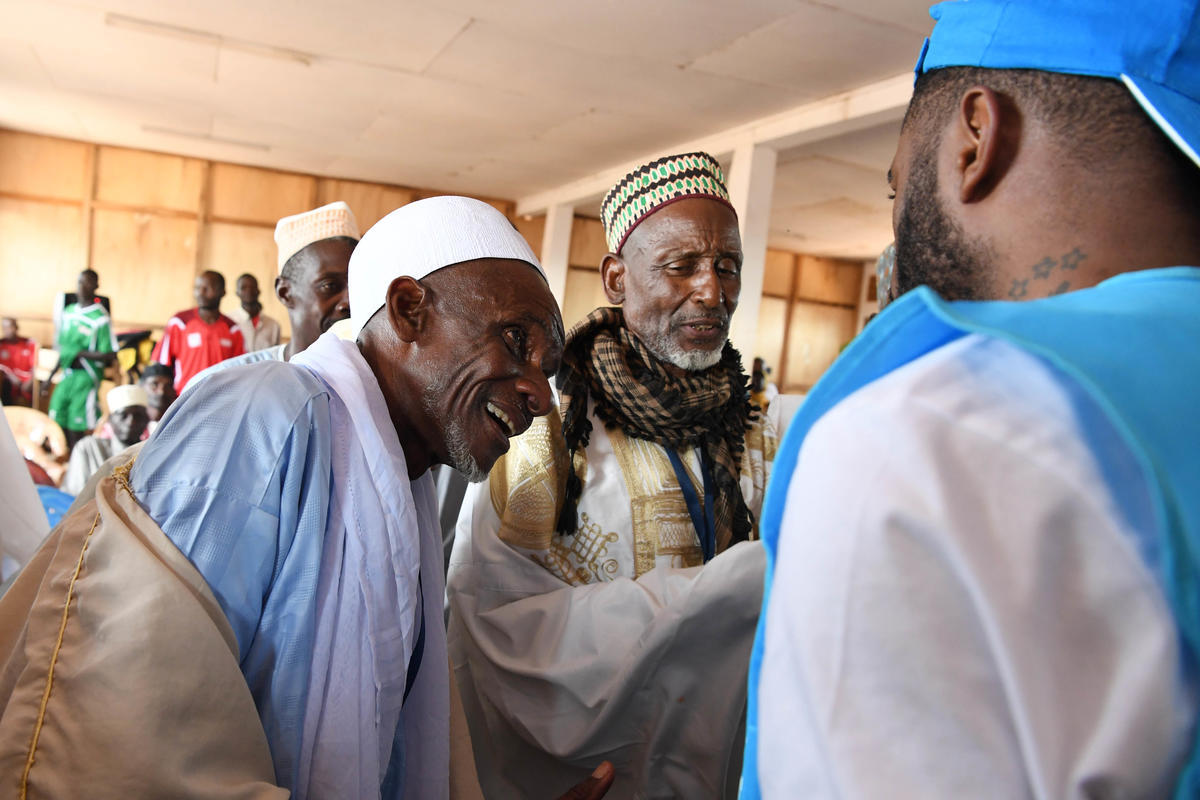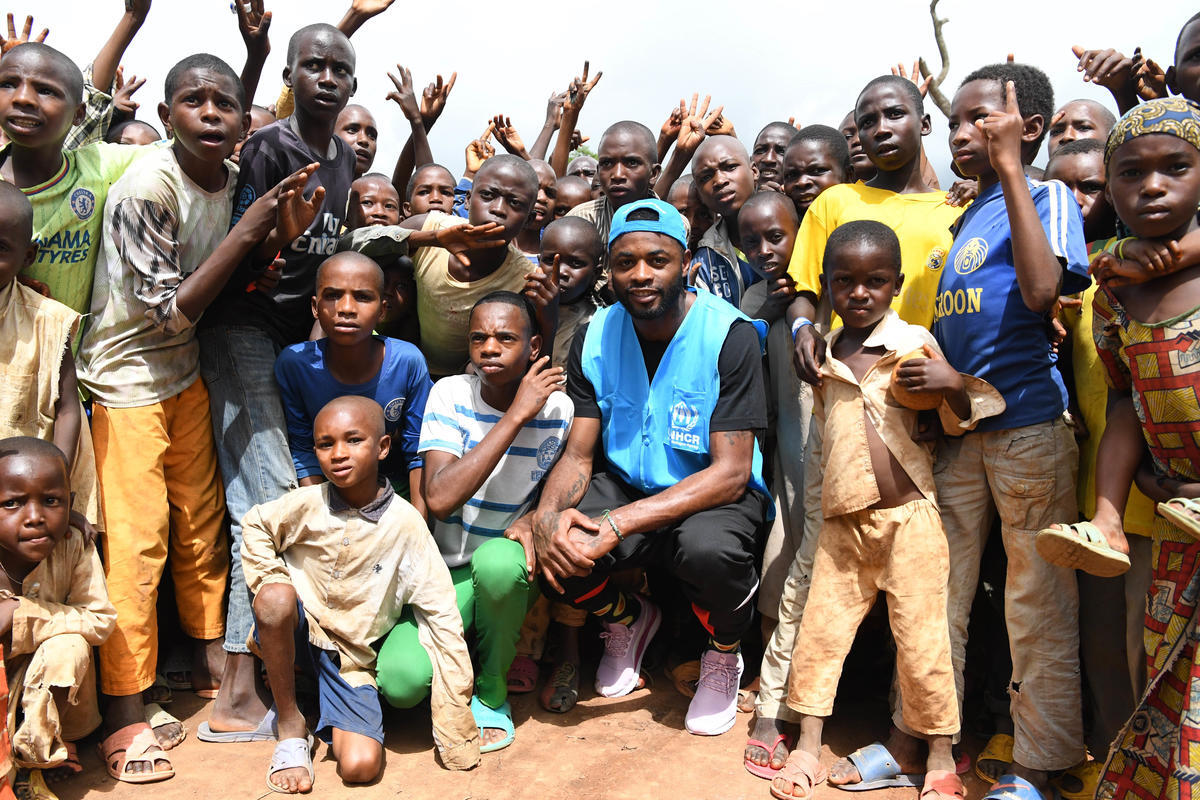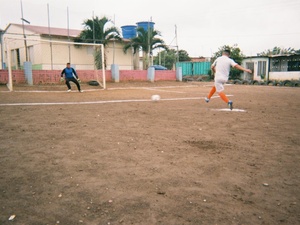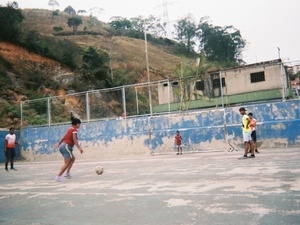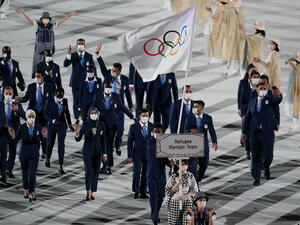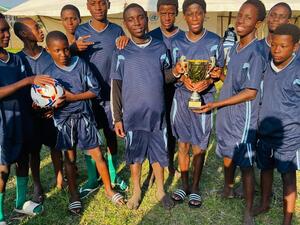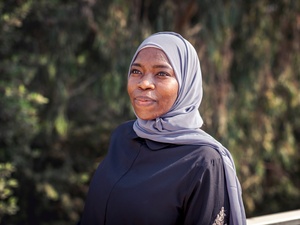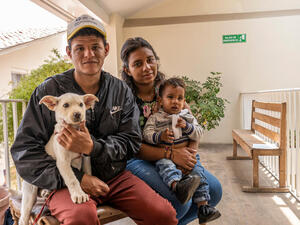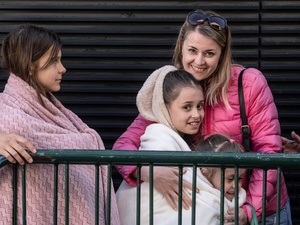Cameroonian football star Alex Song champions education for Central African refugees
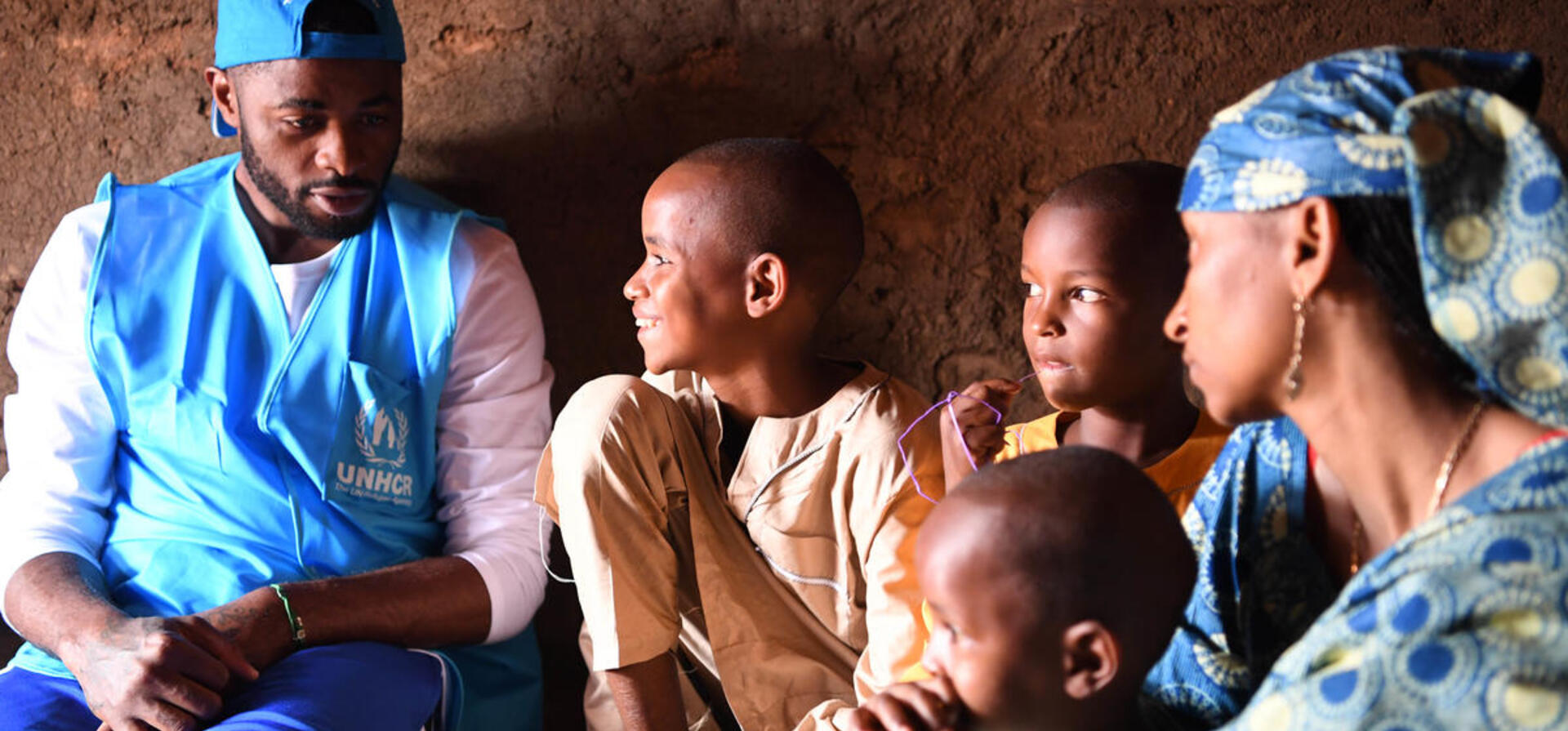
Cameroonian football star Alex Song champions education for Central African refugees
International football star Alex Song visited refugees in eastern Cameroon earlier this year and provided some much-needed hope and inspiration to young people.
He went to Gado, Borgop and Lolo camps during a visit organized by UNHCR, the UN Refugee Agency where he spent time with refugees that are part of a population of some 270,000 people displaced by a conflict just kilometres away - across the border in the Central African Republic. More than half of the refugees are children.
“I have never lived in a refugee camp, but I have known misery. I know no matter where you come from, no matter the condition, there is always hope.”
Song’s record as a player is without question: he has played for clubs like Arsenal and Barcelona and also represented Cameroon at two world cups. He currently plays for Swiss club Sion.
What’s less well known is his difficult upbringing.
The 32-year-old grew up in the port city of Douala but lost his father at a young age and had to take care of his six siblings, while his mother worked to provide for the family. For a while, he sold paper napkins on the street to help out.
“I have never lived in a refugee camp, but I have known misery. I know no matter where you come from, no matter the condition, there is always hope,” he said. “We can always build something. You can become somebody.”
“Do not give up. Study hard. It is your future,” he told the young refugees.
UNHCR is working with partners to include more children in national schools but underfunding and limited resources mean only 8 percent of the refugees make it to secondary school. Girls’ enrolment is also much lower than boys, in part because of child marriage.
He also had a message for parents.
“I implore you, send your children to school. Do not let anyone steal their childhood,” he said.
During the visit in July, Song also met refugees in Cameroon’s main cities, Yaoundé and Douala, where UNHCR is working with partners to promote economic inclusion by facilitating small business loans.
This year, UNHCR received only 14 per cent of the funding it needs to scale up its response in areas including education, livelihoods and shelter.
Some refugees have returned to the Central African Republic following news of improved security and about 6,000 say they want help to go back, but for the majority, humanitarian assistance remains vital.


